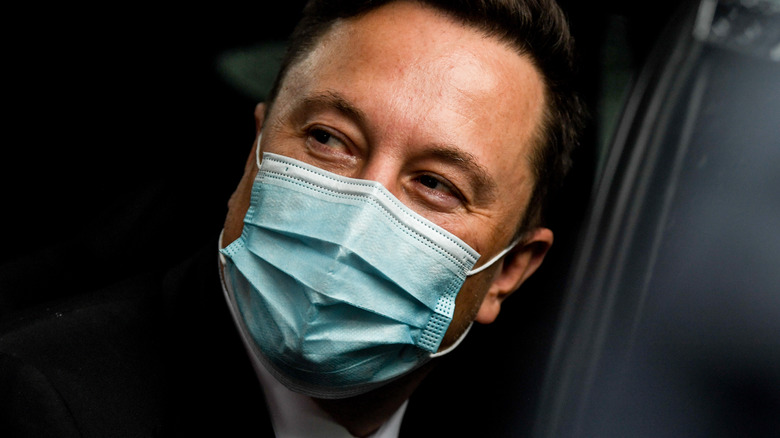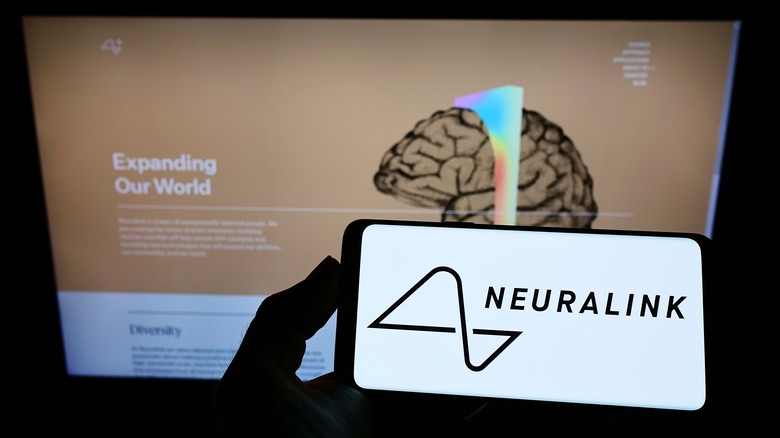Elon Musk Says First Human Neuralink Trial Could Be Six Months Away
Elon Musk has issued a new prediction as to when one of his Neuralink chips will first be implanted in a human brain. Neuralink is one of Musk's more ambitious projects. It essentially involves putting chips into human brains to make interfacing with things like computers faster and easier. The project has several goals, which the world's richest man has repeatedly outlined.
Perhaps the most outlandish is Musk's insistence that Neuralink is the only way people will be able to compete with the super intelligent AIs he says humanity will one day develop. A more realistic goal involves improving severely disabled people's quality of life. As Neuralink is primarily an interfacing device, it could help quadriplegic people communicate and interact with devices they could not otherwise use. Musk has gone so far as to claim that a fully paralyzed person with a Neuralink implant could use a smartphone faster and more effectively than an able bodied person.
While brain surgery is currently a major medical procedure, Musk envisions Neuralink implantation as something that will eventually take place in a doctor's office and take around an hour — with the patient going home afterwards. Robots will also be responsible for inserting the implants, and one of the bots was shown probing threads into a dummy's brain during Neuralink's 2022 "Show and Tell" event. The event also included a few other revelations, including the fact Neuralink would be easily upgradable. Musk says the upgradability is very necessary, likening the implant in its current state to the first generation of iPhones and quipping that "you wouldn't want a first generation iPhone implanted in your head." But the big news of the evening was undoubtedly Musk's latest estimate of when a Neuralink chip might finally be put in a human brain.
The project has been the subject of controversy
The project has caused a number of controversies. Experts have also cast doubt on both its viability and its ability to pass the stringent requirements regulators have put in place. Animal welfare activists have expressed concern about Neuralink's practices and its treatment of the animals it is testing the chip on. Several monkeys have died during testing, with documents suggesting the "bioglue" used to implant the chip was the cause of at least one death, with others dying due to infection and other complications.
If some experts are correct, the project may not ever go beyond the testing phase. Dr. John Adler, Emeritus Dorothy and Thye King Chan Professor of Neurosurgery and Radiation Oncology at Stanford has previously told Slashgear that regulators are unlikely to allow Neuralink to be implanted in anyone who doesn't already have severe neurological impairments, and that Musk will have "met his match" if he tries to take on the likes of the FDA. In terms of practicality, Dr. Adler also believes that we are decades away from having the ability to successfully implant something like Neuralink. He says: "I think the biology is decades from allowing us to place electrodes on/within the brain that don't scar over and stop working." Still, Musk is pushing ahead with the project and seems to want to get a Neuralink chip inside a human as soon as possible.
A Neuralink chip could be in a human brain next year
During Neuralink Show and Tell, Fall 2022, Musk announced that the company had "submitted the paperwork to the FDA" and claimed that "we [Neuralink] think within about six months we'll be able to put our first Neuralink in a human." If Musk's prediction is true, a living person will have a Neuralink chip in their brain by May next year at the latest. However, this prediction should be taken with a pinch of salt.
Neuralink has been waiting on the FDA's approval for human testing for a while. Back in 2021, Musk was talking about potentially moving on to the human testing phase this year. A year has passed, but Musk is once again talking about a human receiving his implant next year. In that time, some of Neuralink's rivals have received FDA approval for their tests, and actually carried out the implants. Sychron Inc put their chip inside a person's brain back in July.
Like Neuralink, their project is focusing on improving severely disabled people's quality of life. Unlike Neuralink, they managed to get an implant into a person within a few months of announcing they would. In six months time, we could be talking about Neuralink moving on to its next phase, but that's entirely out of Musk's hands and in the hands of FDA regulators. While the SpaceX CEO may have gotten a satellite network into low orbit, Neuralink might be a project too far. After all, it's not rocket science. It's brain surgery.

